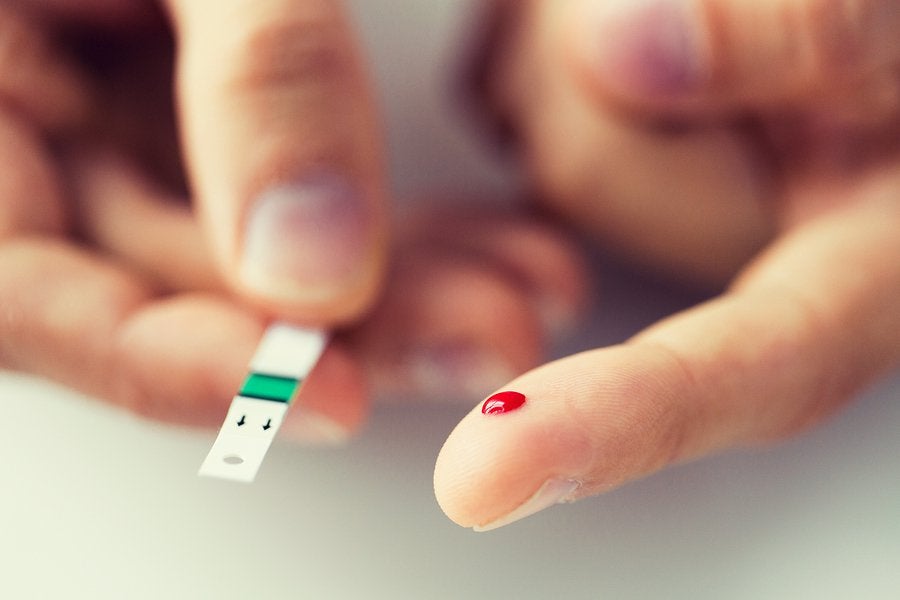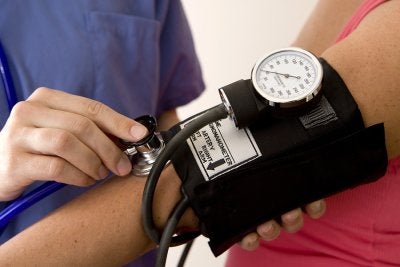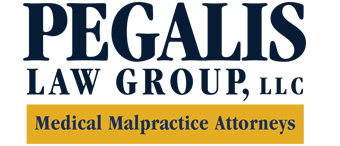-
Diabetes Alert Day
Raise your awareness of Type 2 diabetes in time for #Diabetes Alert Day. Diabetes affects more than 10% of the U.S. and one out of four adults with diabetes aren’t aware they have the disease. Another 84 million Americans have prediabetes, but 90% of them don’t know it yet. Many people are unaware of the serious health problems associated with diabetes, so it is important to learn if you are at risk of developing diabetes.
 There are two kinds of diabetes: Type 1 and Type 2. With Type 1 diabetes, the pancreas stop producing insulin, which regulates blood sugar. With Type 2 diabetes, the pancreas produces too little insulin or the body’s cells are not responding properly to insulin. Both types of diabetes can lead to dangerous conditions, such as heart disease, vascular disease and stroke, eye damage, kidney damage, and hard-to-treat infections, Have you told your doctor about any risk factors you have such as family history of diabetes? Your age, extra weight and a sedentary lifestyle should all be considered. Tell your doctor immediately if you have diabetes symptoms such as frequent urination, itchy skin, fatigue, hunger, dry mouth, and blurred vision. Your doctor can help determine the right screening and treatment plan..
There are two kinds of diabetes: Type 1 and Type 2. With Type 1 diabetes, the pancreas stop producing insulin, which regulates blood sugar. With Type 2 diabetes, the pancreas produces too little insulin or the body’s cells are not responding properly to insulin. Both types of diabetes can lead to dangerous conditions, such as heart disease, vascular disease and stroke, eye damage, kidney damage, and hard-to-treat infections, Have you told your doctor about any risk factors you have such as family history of diabetes? Your age, extra weight and a sedentary lifestyle should all be considered. Tell your doctor immediately if you have diabetes symptoms such as frequent urination, itchy skin, fatigue, hunger, dry mouth, and blurred vision. Your doctor can help determine the right screening and treatment plan.. As with many health issues, early detection is key to controlling diabetes, and this starts with a correct diagnosis. If your doctor failed to diagnose your diabetes or pre-diabetes and you suffer serious permanent harm, it is a good idea to obtain a legal consultation. Our legal team has more than 45 years experience in patients’ medical malpractice lawsuits, and can help you determine the truth, with no fee. For more information, or to schedule your free consultation, give us a call today at (516) 684-2900
-
The Challenges in Diagnosing Cancer
Diagnosing cancer in its earliest stages can make an enormous difference in how successful treatment is. By the same token, failing to diagnose cancer on a timely basis can reduce the effectiveness of treatment. Even if medical practitioners are careful and conscientious, however, it can still be difficult to diagnose many forms of cancer. These are some of the types of cancer that present the greatest challenges:
Pancreatic Cancer
While it is considered relatively rare, pancreatic cancer also has one of the lowest survival rates of any type of cancer. The symptoms are subtle and can easily be mistaken for the signs of a different condition. There is also no widely agreed-upon method for effectively detecting this cancer at its earliest stages.Liver Cancer
Like pancreatic cancer, liver cancer does not usually show any obvious symptoms in its early stages. Since the liver is located deep inside the body, the tumors are impossible to detect through self-examination. By the time it can be more easily diagnosed, the disease has usually spread to the point where it is much more challenging to treat. Brain Cancer
Brain Cancer
Brain cancer is one of the most difficult forms of cancer to identify. There is no way to screen for a brain tumor, and the symptoms—which include headaches and muscle weakness—are readily confused with those of other illnesses. Unfortunately, brain cancer is not usually diagnosed until its later stages.Ovarian Cancer
Cancer of the ovaries is the deadliest type of reproductive cancer. As with other hard-to-detect cancers, ovarian cancer does not present any obvious symptoms at first. It is also difficult to detect during pelvic exams, and it is not usually found during Pap tests. There is no reliable screening for ovarian cancer, so it’s important to see a physician if you notice any of the warning signs—which include bloating, feeling unusually full after eating, and more frequent urination. Women who are positive for the BRCA gene are at a greater risk for developing Breast Cancer but also Ovarian Cancer. You should discuss your particular situation with your physician to establish a plan for surveillance and care options.If you believe that you or a loved one has suffered serious consequences because a medical professional failed to identify the symptoms of cancer, it’s time to talk to Pegalis & Erickson, LLC. Our legal team has nearly 50 years of experience bringing successful medical malpractice suits on behalf of our clients. For a free consultation at our law office in Long Island, New York, call (516) 684-2900.
-
Do you know where your Brachial Plexus Is?
Every time you bend your wrist, raise your hand, or shrug your shoulders, you’re making use of your brachial plexus, a bundle of nerves centered in your spinal cord. The brachial plexus is responsible for controlling the movement of your entire arm! If a doctor or mid-wife uses force or twists a baby’s head during labor and delivery, it can result in injury to the baby’s nerves and chronic arm paralysis. This condition is known as Erb’s Palsy or Brachial Plexus palsy. While some children will make a full recovery as toddlers, other children move into their teens and adulthood not being able to enjoy full use of that arm. The condition will then continue through their lifetime. Treating Erb’s Palsy as soon as diagnosed can include a combination of physical therapy and nerve grafts. That oftent leads to a better lifetime outcome.
 If you wonder if your child’s disability could be the result of a medical error, it’s important that you talk with an experienced medical malpractice attorney. Pegalis & Erickson, LLC, can provide you with the professional legal guidance you require, at no charge. To reach our New York office, call us at (516) 684-2900.
If you wonder if your child’s disability could be the result of a medical error, it’s important that you talk with an experienced medical malpractice attorney. Pegalis & Erickson, LLC, can provide you with the professional legal guidance you require, at no charge. To reach our New York office, call us at (516) 684-2900. -
Focusing on Heart Health
Responsible for an estimated 1 out of every 4 deaths in the U.S., heart disease is America’s deadliest health problem. There are a number of steps you can take to lower your risk of developing heart problems, including maintaining a healthy weight, eating a nutritious diet, and getting plenty of exercise every day. One of the biggest risk factors for heart disease is high blood pressure. If your blood pressure is high, effectively controlling it could be a life-saving change for you. Don’t forget to remind your loved ones to have their blood pressure checked by their physician on a regular basis. High blood pressure can be asymptomatic, yet its danger lies in its connection to stroke and other serious vascular diseases. Given this aspect of high blood pressure, it is especially important to make sure your healthcare provider hears and responds to your concerns in a manner you are comfortable with—and, should your expectations go unmet, it is critical to speak up.

Pegalis & Erickson, LLC, has been fighting to protect the rights of patients who have suffered due to medical malpractice for nearly half a century. If you or a loved one has suffered cardiac arrest because your concerns were not treated seriously, call our Long Island legal office at (516) 684-2900 to schedule a consultation.
-
Focusing on Women’s Heart Health
Did you know that heart disease is the number one killer of women? Causing one in three deaths, heart disease kills about one woman each minute. February is heart health month, so it’s a great time to think about the risk factors, as well as preventive measures to protect women’s heart health.
In women, heart disease can present differently than it does in men. As an example, consider how women experience heart attacks. Rather than the crushing chest pain most people associate with a heart attack, women tend to report pressure or discomfort in the chest. In fact, women sometimes have heart attacks without any chest pain at all, instead experiencing symptoms like:
- Discomfort in the neck, jaw, shoulder, upper back or abdomen
- Shortness of breath
- Arm pain, occurring in one or both arms
- Nausea or vomiting
- Sweating
- Lightheadedness or dizziness
- Unfamiliar fatigue
Women often show up at the emergency room with some of these symptoms, and are incorrectly diagnosed with other issues, like heartburn, indigestion, or even psychological or emotional problems. Because of a lack of awareness about women’s heart health, many women have already suffered significant damage to the heart muscle by the time they are diagnosed correctly. Sometimes, by the time symptoms get bad enough to compel a woman to go to the emergency room, it’s already too late to save her life.

Who is at risk? For women, risk factors for heart disease include smoking, obesity, diabetes, high cholesterol, high blood pressure, menopause, mental stress and depression, complications of pregnancy, and a family history of heart disease. The best defense against heart disease, then is to stop smoking, eat a heart healthy diet, exercise regularly, maintain a healthy weight, and try to reduce your stress. It’s important to be proactive in regard to your health, and see a doctor regularly, so that you are less likely to be misdiagnosed if you do have a problem
Why are women so often misdiagnosed when it comes to heart disease? Many women die of heart disease, simply because their condition went undiagnosed. This may be because doctors fail to see the subtler signs exhibited by women, or it may be because women tend to downplay their own symptoms. Whatever the reason, it’s important to take charge of your own health, and pay attention to what your body is telling you. Don’t immediately accept a diagnosis, but push for a thorough examination if you feel that something is truly wrong.
If you are dealing with an instance of medical malpractice, contact Pegalis & Erickson, LLC for capable legal representation in the area of Long Island, New York. For almost 45 years we have advocated for people of all ages, in order to help our clients financially and make healthcare safer for everyone. You can reach us today by calling (516) 684-2900.
-
Outlook for Infants with Cerebral Palsy
 Receiving a diagnosis of cerebral palsy for an infant can be a devastating blow for any parent. Understandably, the most urgent question most parents have is what the likely outlook is for their child. In most cases, it won’t be clear what a child’s long-term prognosis will be until the age of 2 or 3. It is statistically highly probable, however, that your child will have some level of intellectual disability, be unable to walk, or have a chronic condition such as epilepsy. It’s important to keep in mind that physical therapy and other forms of treatment may improve your child’s prognosis and make it easier for him or her to enjoy a better quality of life despite the disorder.
Receiving a diagnosis of cerebral palsy for an infant can be a devastating blow for any parent. Understandably, the most urgent question most parents have is what the likely outlook is for their child. In most cases, it won’t be clear what a child’s long-term prognosis will be until the age of 2 or 3. It is statistically highly probable, however, that your child will have some level of intellectual disability, be unable to walk, or have a chronic condition such as epilepsy. It’s important to keep in mind that physical therapy and other forms of treatment may improve your child’s prognosis and make it easier for him or her to enjoy a better quality of life despite the disorder. The attorneys at Pegalis & Erickson, LLC have been representing parents in cases involving birth injuries for more than 40 years. For a free consultation at our law office in Long Island, New York, contact us today at (516) 684-2900.
-
Reducing the Risk of Medical Malpractice
Even the simplest medical errors can cause serious and even irreparable harm. If you believe that you have been treated negligently by a medical professional, it’s important to seek legal advice from a professional right away. If you are currently receiving treatment, however, there are some steps you can take in order to reduce your risk of being harmed by medical malpractice.
 Keep complete records.
Keep complete records.
You should be careful to keep all of your personal medical records, for your personal reference as well as that of any healthcare providers that you see in the future. You should also make a note of every visit you make to a physician’s office, hospital, specialty clinic, and any other medical facility.Make a note of your symptoms.
If you’re experiencing symptoms regularly, it’s smart to start keeping a record of them. This doesn’t have to be a diary; it can be as simple as buying a desk calendar and making a quick note whenever you experience a certain symptom. The more details you provide, however, the more useful these notes will be.Bring someone with you.
It’s never a bad idea to bring somebody along with you to your medical appointments. Along with providing support, the person accompanying you can help you remember any questions you have been meaning to ask. This is especially important if you have a chronic medical condition and need to visit your physician frequently.Seek a second opinion.
If you are concerned about your diagnosis—or lack of diagnosis—for any reason, you may want to find another medical professional and get a second opinion. Don’t bring up the original diagnosis you received—in order to be as objective as possible, a second opinion needs to be formed without reference to the first opinion.At Pegalis & Erickson, LLC, our dedicated team of experienced attorneys works to provide all of our patients with the capable legal guidance they deserve. If you or a loved one has been hurt by the negligence of a healthcare provider, you can contact our office in Long Island, New York, at (516) 684-2900 to arrange a free consultation.
-
The Importance of Handwashing
 Regular handwashing is critical for preventing the spread of germs, especially in a medical setting. In order to protect patients, healthcare providers should wash their hands as frequently as possible, particularly when they move from one patient to the next. Failure to perform routine handwashing can expose patients to hazardous germs and viruses and place their health in extreme danger. Patients themselves should also be alert to the need to clean their own hands frequently. Studies have shown that using alcohol-based hand sanitizer is more effective in many cases than soap and water, although there are some infections that it does not work against. Soap and water are most strongly recommended before eating, as well as after using the restroom.
Regular handwashing is critical for preventing the spread of germs, especially in a medical setting. In order to protect patients, healthcare providers should wash their hands as frequently as possible, particularly when they move from one patient to the next. Failure to perform routine handwashing can expose patients to hazardous germs and viruses and place their health in extreme danger. Patients themselves should also be alert to the need to clean their own hands frequently. Studies have shown that using alcohol-based hand sanitizer is more effective in many cases than soap and water, although there are some infections that it does not work against. Soap and water are most strongly recommended before eating, as well as after using the restroom. If you are dealing with an instance of medical malpractice, contact Pegalis & Erickson, LLC for capable legal representation in the area of Long Island, New York. You can reach us today by calling (516) 684-2900.
-
Steve Erickson named only Lawyer of the Year on Long Island, NY for Personal Injury Litigation
 Lake Success, NY, January, 10, 2018… Pegalis and Erickson, LLC is proud to announce that Pegalis & Erickson, LLC has been recognized by Best Lawyers in America© among only 5% of all US law firms. Additionally , founding partner Stephen Erickson is named the only 2018 LAWYER of the Year in Long Island, NY for Plaintiffs Personal Injury Litigation, by Best Lawyers©. Stephen Erickson, Esq. is the only plaintiffs’ personal injury lawyer on Long Island to receive this honor. He is one of the nation’s foremost medical malpractice trial lawyers. As an advocate across New York State for seriously injured victims of avoidable medical harm, he obtains some of the highest jury verdicts and settlements in New York State history.
Lake Success, NY, January, 10, 2018… Pegalis and Erickson, LLC is proud to announce that Pegalis & Erickson, LLC has been recognized by Best Lawyers in America© among only 5% of all US law firms. Additionally , founding partner Stephen Erickson is named the only 2018 LAWYER of the Year in Long Island, NY for Plaintiffs Personal Injury Litigation, by Best Lawyers©. Stephen Erickson, Esq. is the only plaintiffs’ personal injury lawyer on Long Island to receive this honor. He is one of the nation’s foremost medical malpractice trial lawyers. As an advocate across New York State for seriously injured victims of avoidable medical harm, he obtains some of the highest jury verdicts and settlements in New York State history. The firm itself has also been listed in the coveted New York 2018 Best Law Firms list, as a Tier One Plaintiffs’ Personal Injury Litigation and Plaintiffs’ Medical Malpractice Law Firm. In addition, six of our attorneys have been named to the Best Lawyers© list, of which only 4% of all attorneys in the US have been named. Best Lawyers® recognized Steven Pegalis, Stephen Erickson, and Annamarie Bondi-Stoddard for Personal Injury Litigation and Plaintiffs’ Medical Malpractice Law. Attorneys Sanford Nagrotsky, Robert Fallarino, and Linda Oliva, were recognized for Plaintiffs’ Medical Malpractice Law.
“Being named Lawyer of the Year means a great deal in our region of admirable competition, and as a firm we are proud to be named year after year among a handful of U.S. law firms,” said Stephen E. Erickson. “Our dedication to injured patients allows us to succeed on behalf of clients of all ages and backgrounds.”
Firms included in the “Best Law Firms” list are recognized for professional excellence by peer and client review. There are no fees associated with receiving a ranking. Receiving the Tier One designation reflects the high level of respect a firm has earned in their industry from the same communities and practice areas.
Pegalis & Erickson, LLC is a New York law firm that represents seriously injured people that suffer avoidable medical negligence. We are advocates for patient safety and medical accountability to ensure safer medical practices for better patient care. In our 45 years of practice, we have won some of the largest verdicts in New York State history for birth trauma, misdiagnosed cancers, and surgical errors, and have obtained justice for construction and serious accident victims. We have helped thousands of people obtain funds for services they need to survive day-to-day living. Visit us at www.pegalisanderickson.com. For health news you can use follow us on Twitter , Facebook and YouTube .
-
Preventing Medication Errors at Home and in the Hospital
 Mistakes happen in every walk of life, but when they come in the form of medication errors, the consequences can be devastating. While many of us depend on our healthcare providers to protect us from medication errors, patients also need to be proactive about protecting themselves. These are some of the steps you can take to reduce the risk of medication errors, both at home and when you’re in a medical facility:
Mistakes happen in every walk of life, but when they come in the form of medication errors, the consequences can be devastating. While many of us depend on our healthcare providers to protect us from medication errors, patients also need to be proactive about protecting themselves. These are some of the steps you can take to reduce the risk of medication errors, both at home and when you’re in a medical facility: Keep a personal medications list.
It’s imperative that you keep a complete list of all medications you are currently taking, and bring it along with you to every medical appointment. Include the name of the medication and your prescribed dosage. You should also include any nutritional supplements or over-the-counter medicines you are taking, any allergies you are aware of, and any other pertinent information.Review your medications with your doctor.
Before you begin taking a new medication, review its prescribed use with your doctor or nurse. Make sure that a trusted loved one also has access to this information. Don’t forget to update your medications list whenever you need to make a change.Check expiration dates routinely.
All medications come with an expiration date, and taking expired medicines can result in subpar treatment or even serious side effects. Check the labels of all the medications you are taking on a regular basis, and dispose of any medications that are past their expiration dates. The FDA recommends that you remove any personal information from containers and seal medicines in plastic bags before throwing them out.Pegalis & Erickson, LLC, has been providing legal assistance to people whose lives have been disrupted by medical malpractice for nearly 45 years. We have won thousands of verdicts and settlements over the years on behalf of our clients. Call our office in Long Island, New York, today at (516) 684-2900 to schedule a free initial consultation.
Recent Posts
Popular Posts
categories
- Uncategorized
- Infographic
- Patient Safety
- Patient Health
- Stillbirth
- Birth Injuries
- Medical Malpractice
- Medical Negligence
- Event
- Erb's Palsy
- Injury
- ER
- Video
- Cancer Misdiagnosis
- Medication Errors
- Cerebral Palsy
- Medical Negligence Lawyer
- Anesthesia Injuries
- Brachial Plexus
- Prostate Cancer
- About Us
- Men's Health
- Skin Cancer
- Breast Cancer
- Misdiagnosis
